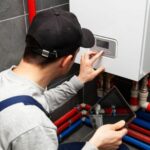Maintaining a commercial plumbing system may only sometimes be the top priority for businesses, but ensuring uninterrupted operations and avoiding costly repairs is essential.
Regular maintenance of commercial plumbing systems plays a crucial role in preventing potential disasters, reducing operating costs, and extending the lifespan of plumbing infrastructure. By understanding and implementing regular maintenance practices, businesses can reap significant benefits and maintain a safe, efficient, and compliant facility.
Due to their size, usage demands, and specific requirements, commercial plumbing services are vastly more complex than residential ones. Moreover, regular maintenance is necessary to keep these systems running smoothly.
The scale of commercial plumbing systems requires a structured maintenance plan that focuses on prevention and early detection of potential problems. This saves money and minimizes the risk of significant disruptions to business operations.
Prevention of Major Plumbing Issues
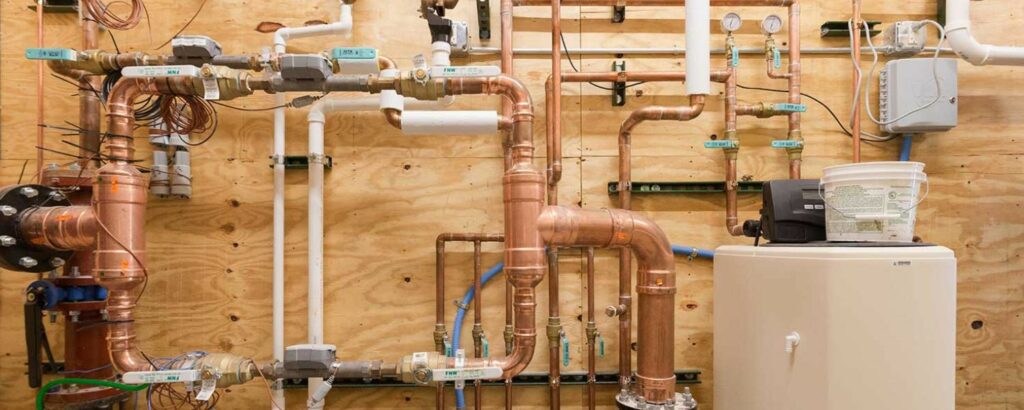
Regular maintenance of commercial plumbing systems can prevent major issues from occurring. With proactive maintenance:
Early Detection of Leaks: Small leaks or clogs can develop into severe problems if not detected early. Routine inspections help spot these issues early.
Avoidance of Emergency Repairs: Scheduled check-ups minimize the likelihood of emergencies that often require costly, immediate attention.
Early identification of leaks or weak points in pipes can prevent burst pipes or significant water damage, which can be disruptive and expensive to repair. A small investment in regular maintenance can save thousands in potential repair costs.
Cost Savings Through Preventive Maintenance
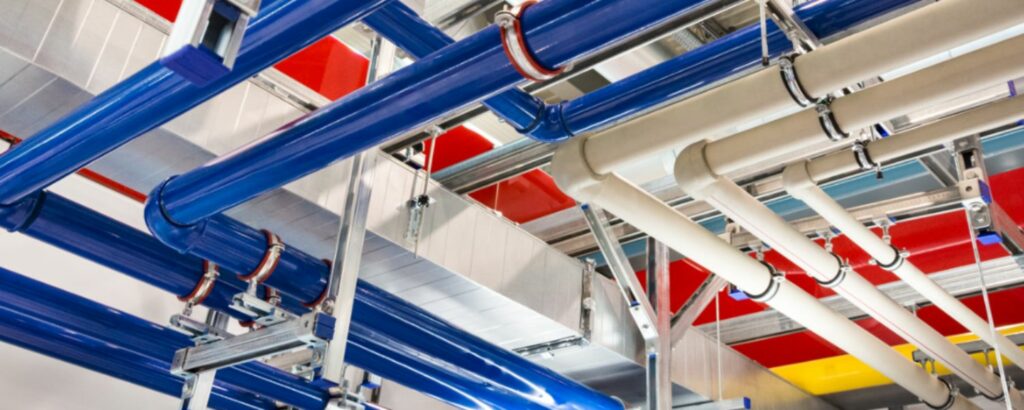
One of the critical advantages of regular maintenance, including home floor heating systems, is the cost savings associated with preventing severe plumbing issues. Regular inspections and minor repairs cost significantly less than emergency repairs or extensive replacements. For instance, if you regularly maintain your plumbing and heating systems, you may avoid the need for an emergency plumber in Victoria BC, which can be much more expensive.
Lower Repair Costs: Scheduled maintenance allows for the early detection and resolution of minor problems, avoiding costly emergency repairs.
Reduced Water and Energy Bills: Efficient plumbing systems use less water and energy, directly translating to lower utility bills.
Regular maintenance ensures that plumbing systems operate efficiently, reducing the amount of water wasted through leaks or inefficient fixtures. Moreover, well-maintained systems use less energy, as pumps, heaters, and other components operate smoothly without being overworked due to blockages or corrosion.
Prolonged Lifespan of Plumbing Systems
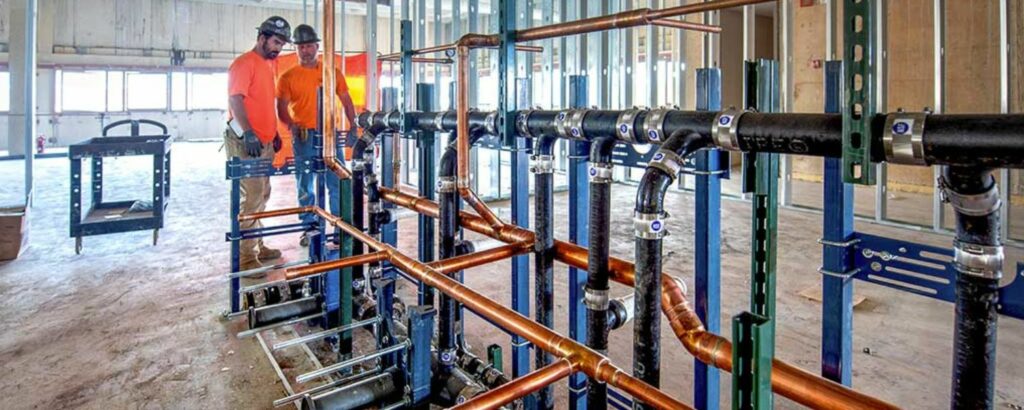
Commercial plumbing systems represent a significant investment for any business. With regular maintenance, commercial plumbing companies can extend the lifespan of their plumbing infrastructure:
Routine Pipe Inspections: Regular checks for corrosion, leaks, and potential blockages can help avoid premature pipe replacements.
Maintenance of Fixtures and Valves: Ensuring that faucets, toilets, and other fixtures function properly reduces wear and tear on the overall system.
Regular maintenance, including boiler maintenance services, reduces the stress on plumbing components, minimizing the chances of early deterioration. Moreover, over time, this leads to fewer replacements, saving both money and reducing the inconvenience caused by significant plumbing renovations.
Enhanced Operational Efficiency
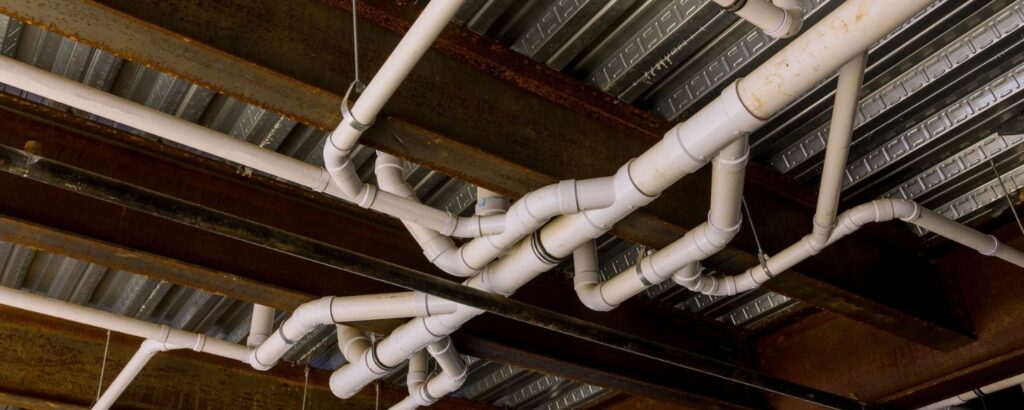
Efficiency is crucial in commercial plumbing systems due to large buildings’ high demand and constant use of water systems. Regular maintenance helps in:
Optimized Water Pressure: Ensuring consistent water pressure throughout the building prevents operational inefficiencies.
Efficient Water Heater Performance: Regular checks and maintenance ensure that water heaters operate optimally, providing hot water without undue strain on the system.
Maintaining operational efficiency helps businesses avoid the disruption caused by water pressure problems or unexpected shutdowns of essential plumbing components. Regular maintenance ensures water heaters, pumps, and other plumbing infrastructure work optimally, reducing energy usage and costs.
Compliance with Health and Safety Regulations
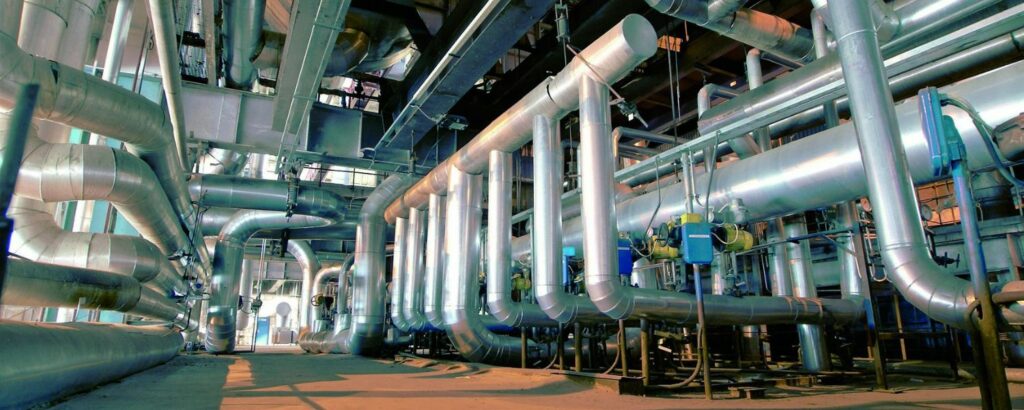
Maintaining commercial plumbing systems is not just about preventing repairs; it also ensures compliance with health and safety regulations. Routine checks and maintenance help:
Prevent Health Hazards: Preventing leaks, clogs, and backups helps maintain a clean and secure setting and avoids potential health hazards.
Ensure Code Compliance: Regular maintenance ensures that plumbing systems adhere to local codes and regulations, avoiding fines and legal issues.
Health and safety are paramount in any commercial setting. By conducting regular maintenance, businesses can ensure that their plumbing systems are up to code, preventing the hazards included in failure to comply, such as fines, legal actions, and damage to reputation.
Improved Customer and Employee Satisfaction
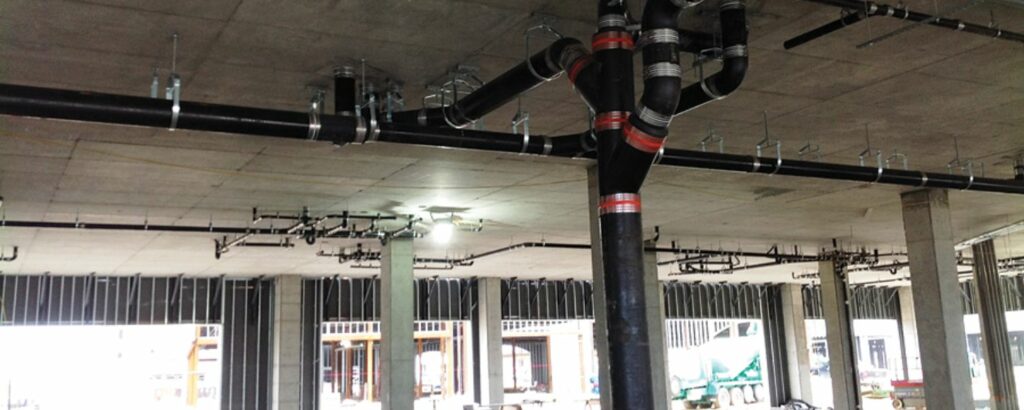
Well-maintained commercial plumbing contractors significantly improve customers’ and employees’ comfort and satisfaction. Considerations include:
Reliable Restroom Facilities: Ensuring restrooms are always functional and clean is vital for customer satisfaction in public-facing businesses.
Safe and Hygienic Environment: A well-maintained plumbing system prevents issues like sewer backups and leaks, ensuring a healthy environment.
Maintaining reliable restroom facilities and commercial plumbing supply is crucial for business reputation in commercial environments, especially those with a high volume of people, such as restaurants, hotels, or retail stores. Poor plumbing can lead to customer complaints, negative reviews, and a decline in business.
Essential Maintenance Practices for Commercial Plumbing Systems
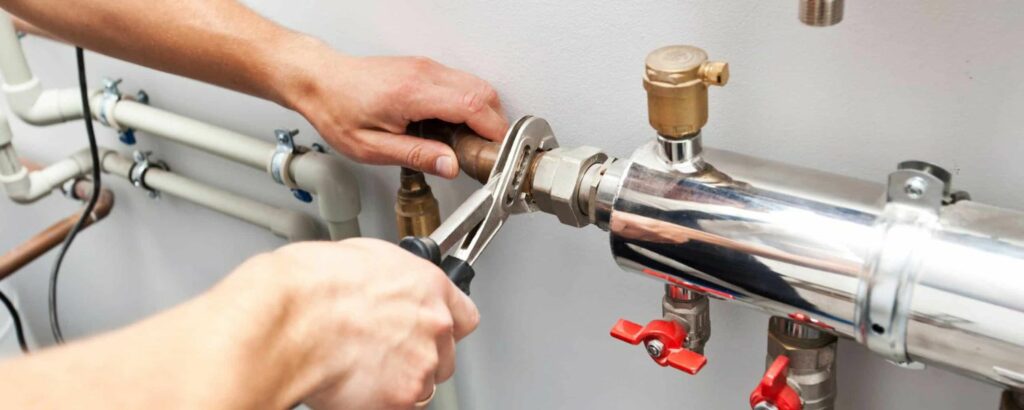
Several critical maintenance practices should be regularly performed to keep commercial plumbing systems running efficiently. These include:
Pipe and Sewer Line Inspections: Regular inspections help identify leaks, corrosion, and blockages early.
Routine Drain Cleaning: Prevents build-ups and clogs that can lead to backups and overflows.
Water Heater Maintenance: Ensures energy efficiency and consistent hot water supply by flushing tanks and checking components.
Implementing these practices as part of a structured maintenance plan can help prevent common plumbing issues and ensure the system’s longevity and efficiency.
Pipe and Sewer Line Inspections
Pipe and sewer line inspections are essential for detecting potential issues before they escalate. With modern technology, such as video inspections, businesses can conduct non-invasive checks to ensure everything is in good condition. These inspections help:
Identify Hidden Leaks or Corrosion: Video inspections can reveal internal pipe damage that is not visible externally.
Prevent Sewer Backups: Regular inspections prevent blockages leading to costly sewer line repairs or replacements.
Routine Drain Cleaning
Routine drain cleaning is critical for preventing clogs and backups, which can cause considerable harm and disruption in a commercial setting. Drain cleaning includes:
Clearing Debris and Build-ups: Regular cleaning prevents grease, hair, and debris from causing clogs.
Maintaining Optimal Drain Flow: Ensures water drains quickly and efficiently, preventing standing water issues.
By regularly cleaning drains, businesses can avoid emergency plumbing calls due to overflows and backups, which are not only costly but can also disrupt operations.
Water Heater Maintenance
Water heaters are a crucial component of commercial plumbing systems, providing hot water for various uses, from restrooms to kitchens. Regular water heater maintenance includes:
Flushing Tanks to Remove Sediment: Sediment build-up can cause inefficiency and reduce the heater’s lifespan.
Checking Anode Rods and Valves: Ensuring these components are in good condition prevents corrosion and leaks.
Proper maintenance of water heaters ensures consistent performance and helps businesses avoid the high costs associated with replacing these critical components.
The Role of Professional Plumbers in Regular Maintenance
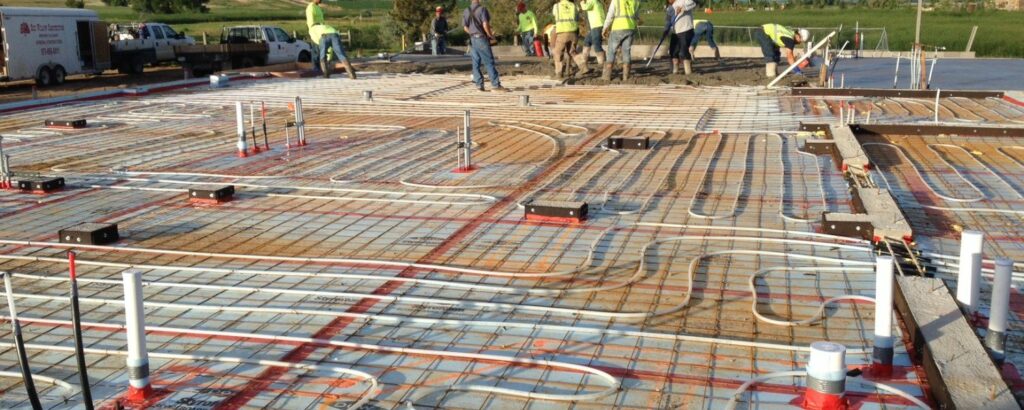
Hiring professional plumber services for regular maintenance is essential to ensure a comprehensive approach to commercial plumbing care. Professional plumbers provide:
Expert Inspections and Diagnosis: Trained professionals can detect issues that may not be obvious to untrained eyes.
Skilled Repair and Maintenance Services: Professionals can efficiently carry out necessary repairs, replacements, and routine checks to keep plumbing systems in optimal condition.
Professional plumbers have the tools, expertise, and experience to handle the complexity of commercial plumbing services, making them indispensable partners in maintaining efficient and safe plumbing infrastructure.
Conclusion
Investing in regular maintenance for commercial plumbing systems is a strategic decision that pays off in multiple ways. The benefits are extensive, from preventing commercial plumbing repair and ensuring operational efficiency to complying with health and safety regulations and prolonging the system’s lifespan.
Businesses prioritizing regular plumbing maintenance save money and create safer, more efficient, and more pleasant environments for their employees and customers.


